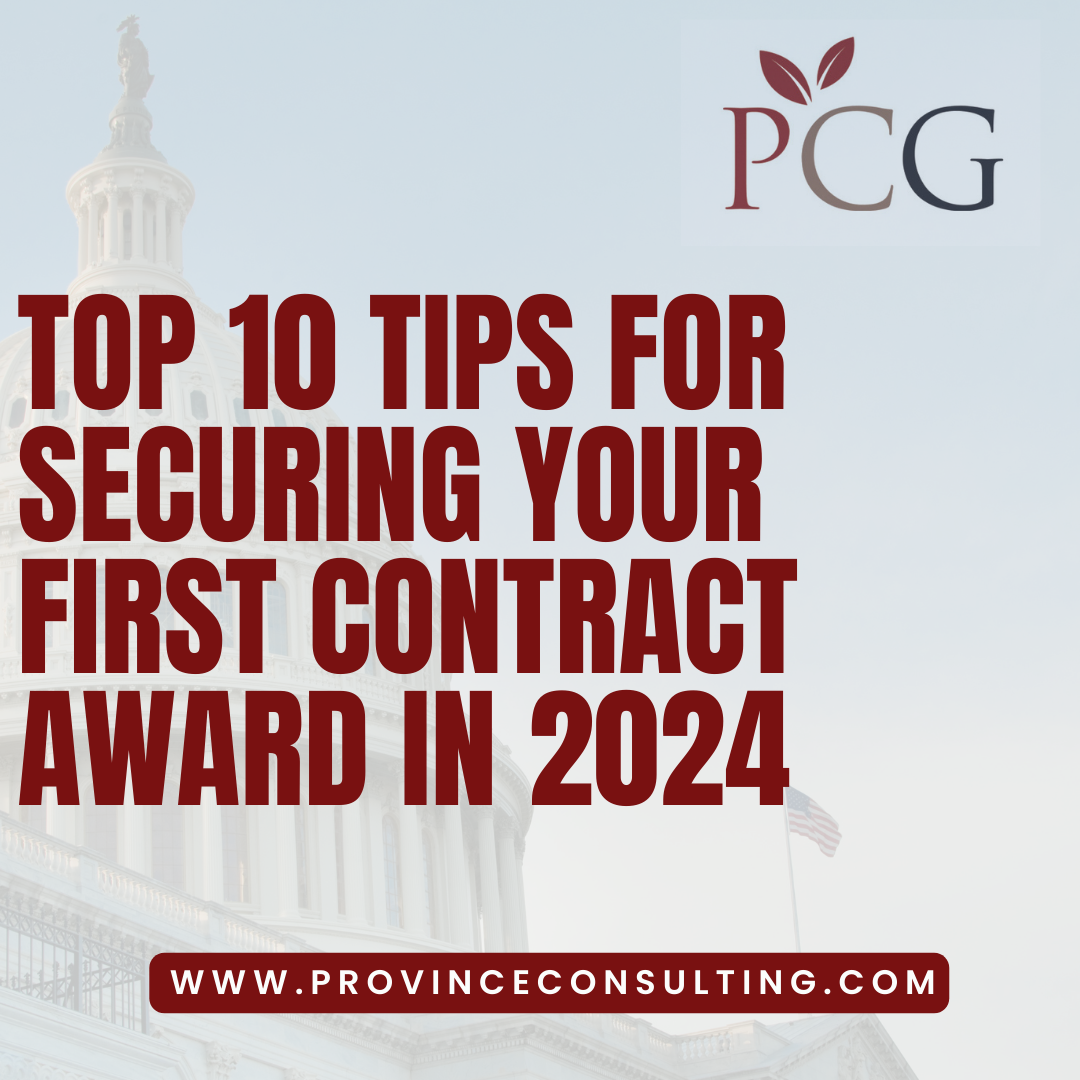Landing that first government contract has yet to happen despite your best efforts. Take a look at ten tips to help you revise your strategy and invigorate your process in the new year so that you can win.
1. Conduct a Comprehensive Capability Assessment:
Are you ready for government contracting? Evaluate your business’s strengths, core competencies, and unique value proposition. Understand where your strengths lie and how they align with government needs. This assessment will help you identify areas to highlight in proposals and presentations (Capability Briefings, for example) with government buyers.
2. Leverage Past Performance and Partnerships:
While you may have yet to win government contracts, highlight relevant experiences, projects, or partnerships demonstrating your ability to deliver quality services/products. Partnering with larger firms as a subcontractor can also build credibility. Have a “Dream Team” partnership that allows you to provide services beyond what your competitors can offer? Highlight the team and process in your marketing efforts, whether at a matchmaking, a briefing, within marketing materials, or in a proposal.
3. Develop a Strong Capability Statement:
Craft a concise and compelling capability statement showcasing your business’s strengths, expertise, and readiness to undertake government contracts. Emphasize your unique selling points and how they align with the agency’s needs. Think of the true differentiators you can add to your Capability Statement. Make sure you continue to tailor your statement to the needs of your specific target agency, which means you will likely have many versions.
4. Target Small Contracts and Set-Aside Opportunities:
Start small to gain experience and establish a track record. Target purchase card orders, smaller contracts, and opportunities designated for small business set-aside programs. These can serve as stepping stones to larger opportunities and help build a portfolio of successful contracts. For example, identify small purchases that offer less risk for the buyer yet fulfill an immediate need. Leverage set-asides by partnering with larger or similar firms that may need your service to meet the scope of work and that may meet an agency’s set-aside requirement.
5. Understand the Procurement Process:
Familiarize yourself with the intricacies of the procurement process. Identify the agencies that buy what you sell and learn about buying patterns. Start with local agencies, and while keeping a roving eye on new opportunities in the marketplace, spend most of your time marketing to your key agency targets. Study past solicitations and RFPs to understand evaluation criteria, requirements, and the language used. This understanding will guide you in crafting more tailored and competitive proposals.
6. Seek Mentorship and Guidance:
Mentors can offer valuable insights and share their experiences navigating the government contracting landscape. Seeking a mentor-protégé relationship and joining industry-specific organizations are ways to reduce the learning curve in your industry. Invest in systems, technical assistance, and coaching to meet your goals.
7. Attend Networking Events and Training Sessions:
Engage in networking events, industry conferences, and training sessions hosted by government agencies or industry organizations. Networking provides opportunities to connect with potential partners and procurement officers, while training sessions offer valuable insights into the process. Make sure to conduct what I like to call the “stealth stalk” of your target agencies, i.e., attending in-person events, webinars, workshops, and the like to remain top of mind.
8. Craft Tailored Proposals:
When responding to RFPs, tailor your proposals to address each requirement comprehensively. Demonstrate how your solutions align with the agency’s needs, providing detailed and evidence-backed approaches to deliver results.
9. Prepare for Compliance and Certifications:
Ensure your business complies with regulations and certifications required for government contracts. Keep your certifications, insurance, bonding, and the like current. Also, ensure you create systems within your company to stand ready to comply with contract reporting. As you read through RFPs, you will likely identify compliance that will be required, which will help you with preparation beforehand.
10. Be Persistent and Agile:
Winning government contracts requires persistence and adaptability. Be prepared for rejections and learn from feedback. Adapt your strategies, stealth stalk, improve proposals and pursue opportunities aligning with your capabilities and goals. Most importantly, build relationships!
This long-game strategy typically requires 6-18 months of consistent application. However, implementing these tips will enhance your competitiveness, build credibility, and increase your chances of securing your first contract award in 2024.

